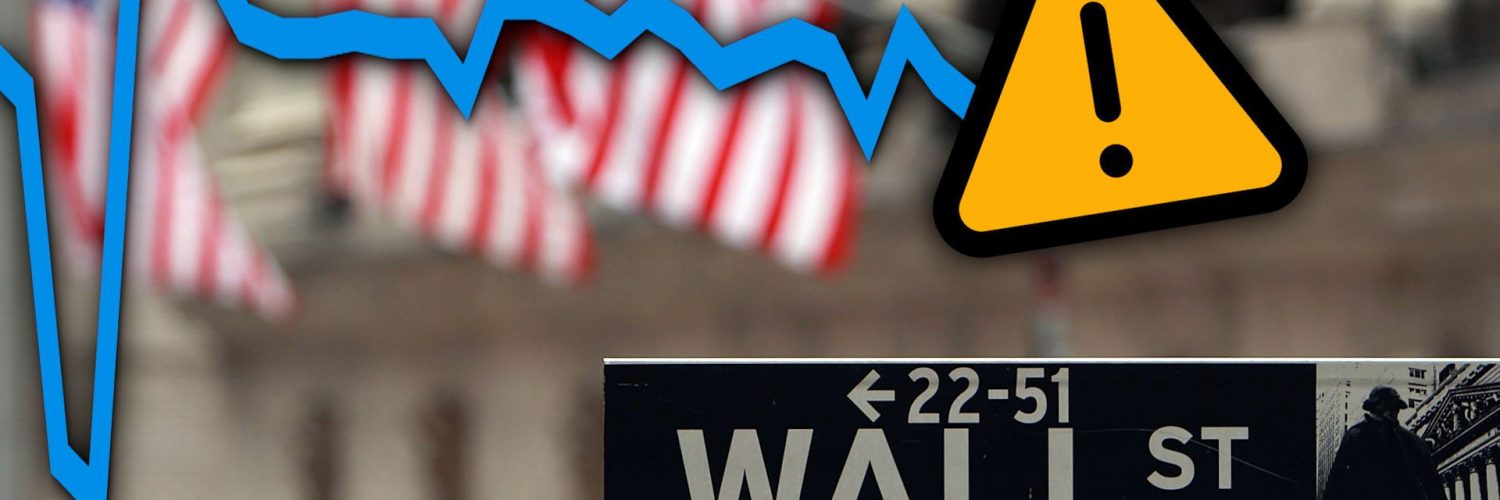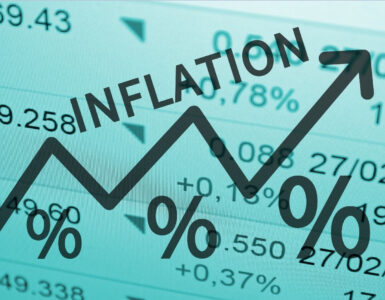Financial markets have been preoccupied with one idea in recent weeks: recession.
The coming week will offer more insight on whether inflation pressures are pushing business and consumer pullbacks that could tip the economy into recession.
Friday’s June jobs report cast doubt on the imminence of a wholesale downturn in the US economy. Last month, the US economy added 372,000 jobs while the unemployment rate held steady at 3.6%.
“The strong 372,000 gain in non-farm payrolls in June appears to make a mockery of claims the economy is heading into, let alone already in, a recession,” said Andrew Hunter, senior US economist at Capital Economics.
Following this report, investors and economists were in broad agreement that continued strength in the labor market sets the table for another 0.75% interest rate increase from the Federal Reserve later this month. In the week ahead, investor attention will turn to Wednesday morning’s inflation data for more clarity on this issue.
Economists estimate headline inflation rose 8.8% last month, an increase that would be the highest since December 1981, and the hottest inflation reading of this current cycle. Ethan Harris and the economics team at Bank of America Global Research notice a more than 7% monthly increase in energy inflation pushing this data to another high.
This reading on inflation, however, will come as energy and commodity prices have shown signs of moderating in recent weeks. Crude oil is down over 12% in the last month, while the price of commodities like corn, soybeans, and wheat were down over 20% through last Wednesday.
Some analysts suggested recession fears and high prices have begun to result in demand destruction. Though analysts at JPMorgan noted last week that since 1965 oil demand has declined in just 10 years, and even increased during the recession of 1991.
Harris and his team also wrote last week that whether the economy is in recession or not is “beside the point.”
“While underlying economic momentum may very well be stronger than the headline GDP data indicate, complicating the ‘recession’ question, it seems clear that US economic momentum has slowed,” Harris wrote.
And the calendar this week will offer investor further checks on just how much this slowdown is weighing on businesses and consumers, with the June retail sales report out Friday morning and updates on industrial production and consumer sentiment that same day serving as highlights.
The week ahead will also bring the start of second quarter earnings season, with the usual early reporters from the financial sector getting things underway.
JPMorgan Chase (JPM), Wells Fargo (WFC), and Citigroup (C) are among the big banks set to release results, while typical early season reporters like PepsiCo (PEP) and Delta Air Lines (DAL) will also be closely wat
Mark Newton, head of technical strategy at Fundstrat, wrote in a note to clients on Friday that, “technically, markets look to be at resistance.”
“While July could prove choppy in the weeks ahead, it’s still more likely than not that a move down to new lows for 2022 happens into late July given evidence of rates turning back higher while the Dollar remains quite strong,” Newton wrote. “While I remain a buyer on weakness, it’s hard for me to have faith in this near-term recovery given lack of participation and weak upward breadth thrust thus far. One should remain defensive over the next 2-3 weeks until this churning runs its course.”
ched for signs of either resilience or softening among US consumers.
Investors will also keep a close eye on the Treasury yield curve, where the 2-year yield trades above the 10-year yield, an inversion that has historically preceded recessions. On Friday, the 2-year yield settled at 3.03% while 10-year yield stood at 3.01%.
Meanwhile, stocks rallied last week as investors continue to try and repair the portfolio damage suffered during the worst first six months to a year since at least 1970.
Yet the recent rebound in markets has been met with trepidation amid suggestions this turnaround could signal the start of something bigger.
Economic Calendar
Monday:
Tuesday: NFIB Small Business Optimism, June (93.2 previously)
Wednesday: Consumer price index, June, YoY (+8.8% expected, +8.6% previously); Core CPI, June, YoY (+5.8% expected, +6% previously); CPI, June, MoM (+1.1% expected, +1% previously); Core CPI, June, MoM (+0.6% expected, +0.6% previously); Federal Reserve Beige Book
Thursday: Initial jobless claims (235,000 previously)
Friday: Retail sales, June (+0.9% expected, -0.3% previously); Retail sales, control group, June (No growth expected, +0.1% previously); Empire State manufacturing index, July (-2.6 expected, -1.2 previously); Producer price index, June, MoM (+0.8% expected, +0.8% previously); Import price index, June, MoM (+0.7% expected, +0.6% previously); Industrial production, June (No growth expected, +0.1% previously); Capacity utilization, June (80.2% expected, 80.8% previously); University of Michigan consumer sentiment, preliminary reading, July (49 expected, 50 previously)
—
Earnings Calendar
Monday:
Before Market Open: No notable companies expected to report.
After Market Close: No notable companies expected to report.
Tuesday:
Before Market Open: PepsiCo (PEP)
After Market Close: No notable companies expected to report.
Wednesday:
Before Market Open: Fastenal (FAST); Delta Air Lines (DAL)
After Market Close: No notable companies expected to report.
Thursday:
Before Market Open: JPMorgan Chase (JPM); Morgan Stanley (MS); Conagra (CAG), First Republic Bank (FRC); Cintas (CTAS)
After Market Close: American Outdoor Brands (AOUT)
Friday:
Before Market Open: Wells Fargo (WFC); BlackRock (BLK); Citigroup (C); BNY Mellon (BK); UnitedHealth (UNH); Progressive (PGR); US Bancorp (USB); State Street (STT); PNC Financial (PNC)
After Market Close: No notable companies expected to report.
Source: Yahoo Finance










